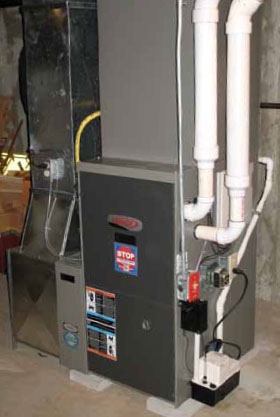In Business Since | License #
In Business Since | License #


Gas Heating / Air Conditioning System.
If you're in the market for a new system, the first thing Dr. Energy Saver will do is determine the size of the HVAC unit that's required. Your heating and air-conditioning requirements are based on numerous factors including house size & orientation, the number & type of windows, how much air leakage and insulation your home has, and different lifestyle factors.
If you integrate air-sealing and insulation upgrades with Dr. Energy Saver, you're about to get a BIG payoff: Your new HVAC system can be smaller in capacity than the equipment you're replacing. It will be less costly upfront to replace your old system, and less expensive to operate too.
Today all new furnaces, boilers, air conditioners and heat pumps come with standardized efficiency ratings. Like the estimated MPG ratings for new cars, higher numbers indicate greater energy efficiency. Ratings used for HVAC equipment are a bit more complicated because different rating systems are used for different types of equipment. The list below explains what the acronyms stand for, and how they correspond to different types of HVAC equipment. Dr. Energy Saver can provide additional details, and identify your best options for better energy efficiency and home energy savings with new HVAC equipment.
| Rating Acronym | What it stands for | Comments |
| AFUE | Annual Fuel Use Efficiency | Used for furnaces, boilers and water heaters. An AFUE of 90% means you get 90 cents of usable heat for every $1-worth of fuel burned. The higher the AFUE, the lower your heating costs. Energy Star qualified furnaces and boilers rate 85% AFUE or higher. AFUE ratings are slightly lower for water heaters, depending on fuel. |
| SEER | Seasonal Energy Efficiency Rating |
Applies to overall efficiency of AC equipment under different operating modes over an entire season. Efficient models typically rate 16 SEER or higher. |
| COP | Coefficient of Performance | A ratio of energy output versus energy input, normally used to describe heat pump performance under specific operating conditions. |
| HSPF | Heating Seasonal Performance Factor |
Rates the efficiency of air source heat pumps. This is basically the average COP for an entire heating season. Efficient heat pumps typically rate 9 HSPF or higher. |
Looking for a price? Get a no cost, no obligation free estimate.